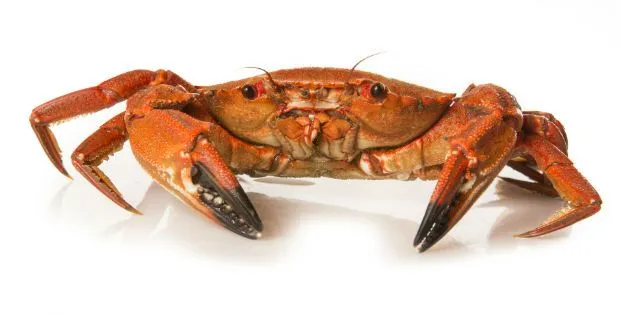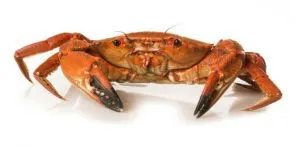
- Share on Facebook39
- Share on Pinterest
- Share on Twitter
Who could have guessed that crustacean shells would prove so incredibly useful to humans? Late last spring, Harvard researchers designed a new biodegradable plastic, known as “shrilk,” from the shells. Now, researchers at Florida Atlantic University have received a grant to study their possible applications in the treatment of irritable bowel disorder (IBD).
The National Institutes of Health (NIH) and the National Institute of Complementary Medicine have just given a $380,552 grant to Dr. Yoshimi Shibata, a professor of biomedical sciences in the Charles E. Schmidt College of Medicine at Florida Atlantic University.
He and his research team will be investigating the anti-inflammatory mechanisms of chitin, a compound found in crustacean shells, in order to hopefully develop new therapies for individuals afflicted with IBD and other inflammatory illnesses.
In previous experiments, Dr. Shibata and his colleagues removed the protein and calcium from shrimp, crab and lobster shells, leaving only the carbohydrates, and then making smaller particles with them, known as mimetic microbes.
The team then demonstrated that chitin microparticles, when taken orally, can reduce the symptoms of inflammatory conditions in animals, and seasonal allergy symptoms in humans.
Dr. Shibata states, “in this new study, we are going to focus on intestinal macrophages and how these mimetic microbes we have developed can produce anti-inflammatory activities, normalize the gut bacterial flora and ultimately improve the symptoms associated with inflammatory bowel disease.”
IBD is characterized by the chronic inflammation of the intestinal tract. This inflammation occurs in people with this condition because the immune system treats food and other substances that enter the intestines as attackers, and in response goes to war with the intestinal cells. This inflammation can in some cases occur every time a meal is eaten.
Within the broad category of IBD, the most common two diseases are Crohn’s disease and ulcerative colitis. With Crohn’s disease, the inflammation can hit any part of the gastrointestinal tract. In the case of ulcerative colitis, only the top layers of the colon are affected.
Both of these conditions can lead to severe digestive pain and symptoms in some cases. Both are usually controlled by steroids, antibiotics and a series of other drugs. If the medications either do not work or stop working, as they do in many instances, surgery is often the next course of action.
According to statistics compiled by the Medical College of Wisconsin, over one million Americans suffer from IBD, and more than 30,000 new diagnoses are made each year.
 Chitin is an abundant material – millions of pounds are either discarded or used as fertilizer worldwide – so an effective anti-inflammatory treatment made from this material would be quite revolutionary, as it would not be costly to manufacture, and would be readily available. Chitin is also non-allergenic and biodegradable.
Chitin is an abundant material – millions of pounds are either discarded or used as fertilizer worldwide – so an effective anti-inflammatory treatment made from this material would be quite revolutionary, as it would not be costly to manufacture, and would be readily available. Chitin is also non-allergenic and biodegradable.
It is wonderful to see that crustacean shells, long considered waste products, may be put to such an innovative use, improving the health of many people, instead of ending up in landfills.
-The Alternative Daily
Sources:
http://www.newswise.com/articles/crab-and-other-crustacean-shells-may-hold-the-key-to-preventing-and-treating-inflammatory-bowel-disease-ibd
http://www.cdc.gov/ibd
http://www.mcw.edu/gastrohep/PatientCare/faq/IBD.htm
http://www.youris.com/Bioeconomy/Fisheries/Nylons_Made_From_Shrimps.kl
https://www.thealternativedaily.com/harvard-researchers-develop-biodegradable-plastic-shrimp-shells
- Share on Facebook39
- Share on Pinterest
- Share on Twitter

